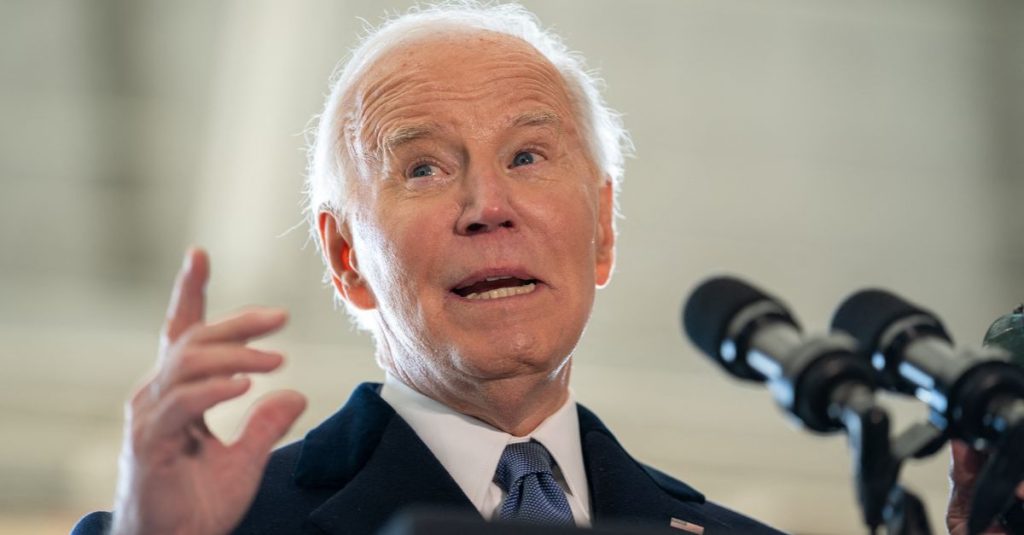In a dramatic move, former President Donald Trump announced on Friday that he would be revoking President Joe Biden’s access to classified information and ending the daily intelligence briefings that Biden has been receiving. Trump made this declaration in a post on his social media platform, shortly after arriving at his Mar-a-Lago estate in Palm Beach, Florida, for the weekend. The decision appears to be a direct act of retaliation against Biden, who in 2021 had revoked Trump’s access to similar intelligence briefings following the January 6th attack on the Capitol and Trump’s efforts to overturn the 2020 presidential election. Trump framed his decision as a response to Biden’s past actions, writing, “He set this precedent in 2021, when he instructed the Intelligence Community (IC) to stop the 45th President of the United States (ME!) from accessing details on National Security, a courtesy provided to former Presidents.”
Trump’s move is the latest in a series of retaliatory actions he has taken against political opponents and critics. Over the years, he has revoked security clearances from dozens of former intelligence officials who publicly criticized him, including those who questioned the authenticity of the Hunter Biden laptop scandal, which Trump and his allies have repeatedly cited as evidence of wrongdoing by the Biden family. Additionally, Trump has targeted former government officials who have spoken out against him, such as former Secretary of State Mike Pompeo and Dr. Anthony Fauci, the renowned infectious disease expert. These actions reflect a broader pattern of vengeance and retribution that Trump has embraced, particularly as he campaigns for the 2024 presidential election.
Biden, for his part, has not yet publicly commented on Trump’s decision to revoke his access to classified information. However, the origins of this feud can be traced back to 2021, when Biden decided to cut off Trump’s intelligence briefings. At the time, Biden cited concerns over Trump’s “erratic” behavior and the risks of allowing him continued access to sensitive information. In an interview with CBS News, Biden expressed his reluctance to speculate on the potential dangers of Trump receiving intel briefings but made it clear that he saw no legitimate reason for Trump to continue having access to such information. “I just think that there is no need for him to have the intelligence briefings,” Biden said. “What value is giving him an intelligence briefing? What impact does he have at all, other than the fact he might slip and say something?”
The decision to revoke Biden’s access to classified information comes amid ongoing tensions between the two leaders, as well as broader scrutiny of how classified documents are handled by former and current government officials. In 2022, federal agents searched Trump’s Mar-a-Lago estate and seized boxes of classified records, leading to charges of illegally hoarding sensitive materials and obstructing efforts to retrieve them. Trump denied any wrongdoing and pleaded not guilty, but a judge later dismissed the charges, citing the improper appointment of the special counsel who had brought the case. The Justice Department subsequently dropped its appeal after Trump’s election in November 2023. In a related matter, Trump recently dismissed Colleen Shogan, the archivist of the United States, a move that appears to be part of a broader effort to consolidate control over government agencies and records.
In his social media post announcing the revocation of Biden’s security clearances, Trump also took aim at Biden’s handling of classified information. He cited a report by special counsel Robert Hur, who investigated Biden’s management of sensitive government records. The report concluded that while criminal charges were not warranted, Biden’s handling of classified materials was deeply flawed, describing his memory as “hazy,” “fuzzy,” “faulty,” “poor,” and marked by “significant limitations.” Trump seized on these findings to argue that Biden should not be trusted with classified information, writing, “The Hur Report revealed that Biden suffers from ‘poor memory’ and, even in his ‘prime,’ could not be trusted with sensitive information.” He ended his post with a characteristic flourish, declaring, “I will always protect our National Security — JOE, YOU’RE FIRED. MAKE AMERICA GREAT AGAIN!”
The decision to revoke Biden’s access to classified information has significant implications, both in terms of national security and the precedent it sets for how former presidents are treated. While it is within the authority of a sitting president to determine whether a former president should continue to receive intelligence briefings, Trump’s move has been seen by many as a thinly veiled act of political retribution. Steven Cheung, Trump’s communications director, echoed this sentiment, sharing Trump’s post on social media and adding, “Hit the road Jack and don’t you come back no more!” The ongoing feud between Trump and Biden highlights the deep divisions and animosity that continue to define American politics, and raises important questions about the balance between national security, presidential privilege, and political accountability. As the two leaders navigate this complex and contentious landscape, the stakes could not be higher—for the nation, for their respective legacies, and for the future of American democracy.









